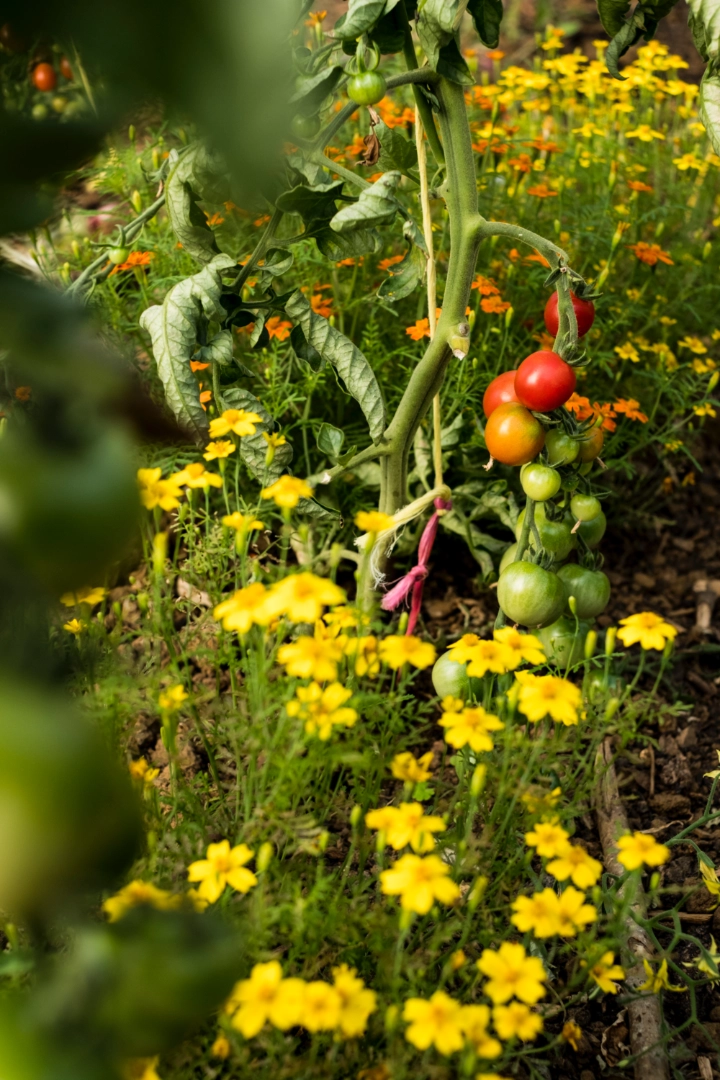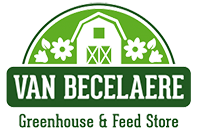Organize Your Garden Rows by Companion Planting

Posted on March 18, 2024 by Van Becelaere Greenhouse
Embracing companion planting is a transformative approach to gardening. It lets you strategically organize your garden rows for optimal health and yield. The practice involves placing specific vegetables and fruits together to benefit from each other’s presence mutually, naturally deterring pests and supporting robust growth.
In today’s blog, we’ll guide you on planning your garden rows to protect and support your plants against common garden adversaries like insects, fungi, and wildlife. Let’s delve into how to organize your garden rows with companion planting, specifically focusing on:
- Tomatoes
- Squash
- Cucumbers
- Pumpkins
Harnessing the Power of Companion Planting
Companion planting, a practice steeped in agricultural tradition, taps into the innate synergies between various plant species to foster a flourishing garden ecosystem. This age-old strategy harnesses the power of protective plants to ward off pests through natural means. Additionally, support plants can boost the growth and vitality of your garden’s inhabitants.
The benefits of such an approach are manifold, including reducing the need for chemical pesticides, enhanced plant health, and increased biodiversity within the garden.
Rooted in generations of gardening wisdom, companion planting offers gardeners a high-level understanding of how to work with nature to create a harmonious and productive space.
Companion Plants for Tomatoes
Tomatoes benefit significantly from having the right neighbors. Marigolds make excellent companion plants because they repel nematodes and pests.
Basil helps keep flies and mosquitoes at bay while enhancing the flavor of your tomatoes. Carrots can improve the soil structure around your tomato plants, and nasturtiums attract aphids away, keeping them off your tomatoes.
Companion Plants for Squash
Squash plants, including zucchini and butternut squash, thrive when paired with nasturtiums and marigolds, which help repel squash bugs and other pests. Beans can enrich the soil with nitrogen, aiding squash growth, and planting radishes nearby can deter squash borers, a common threat to squash plants.
Companion Plants for Pumpkins
Pumpkins and squash are both part of the Cucurbitaceae family. Pumpkins, therefore, do well with marigolds and nasturtiums, which act as natural pest deterrents.
Corn can provide climbing support and shade for pumpkin vines, while beans help to fix nitrogen in the soil, benefiting pumpkin growth. Garlic is known to deter many pests that can harm pumpkin plants, such as aphids, spider mites, and squash bugs.
Companion Plants for Cucumbers
Cucumbers prosper when planted alongside catnip, borage, and dill, which deter pests. Oregano can repel cucumber beetles, and including peas and beans in your garden rows can enrich the soil with nitrogen, promoting healthier cucumber plants.
Tall sunflowers can provide shade and support for cucumber vines while attracting pollinators. Lettuce can shade cucumber roots during hot weather and can be grown as a ground cover to help retain soil moisture.
Laying Out Your Garden Rows
When planning your garden rows, consider each plant’s space and light requirements to ensure they have the room they need to flourish. Position taller vegetables and fruit-bearing plants, on the north side of your garden to prevent shading smaller plants. Intersperse pest-deterring flowers like marigolds and nasturtiums throughout your vegetable rows to naturally defend against pests.
Diversity is the foundation of a successful companion planting strategy. A garden with various plants is less likely to succumb to pest invasions and diseases. Incorporating a mix of protective and supportive companions creates a resilient ecosystem where plants can thrive in harmony. Integrate companion planting into your gardening practice this season to create well-organized, productive garden rows.
For more personalized guidance on planning your garden or selecting companion plants, contact Van Becelaere Greenhouse at 620-231-1127 with assistance on all your gardening needs. Let’s work together to make your garden a testament to the effectiveness and beauty of companion planting.
